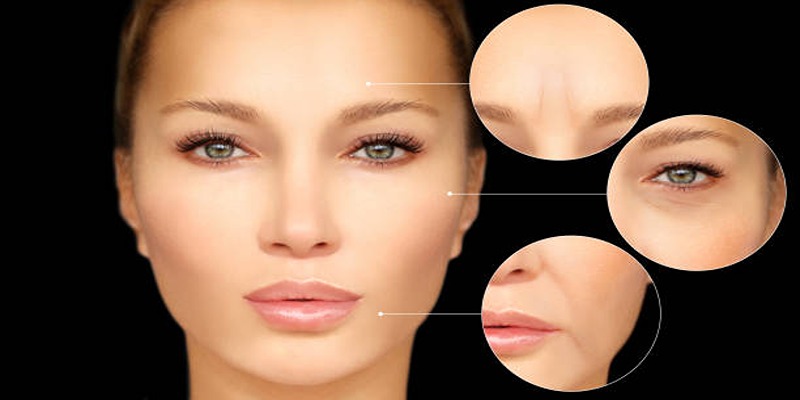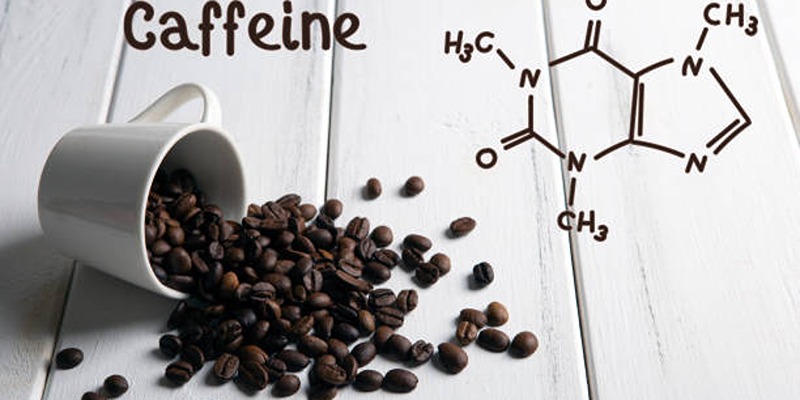Propylene glycol is one of the most popular ingredients in the beauty and skincare industry due to its flexibility and positive properties. Its use as a humectant and solvent makes it a valuable additive in a wide variety of cosmetic preparations. This article discusses its effect on skin moisture and consistency of the formulation as well as possible issues and where to go for a substitute. Propylene glycol functions and information allow consumers to make the right choices regarding their body care products. Discover more information about propylene glycol as well as its importance and potential impacts on the beauty sector.
Role in Beauty Products

Propylene glycol plays a multifaceted role in enhancing the effectiveness of beauty products. Its unique properties make it an indispensable ingredient in the skincare industry.
1.Moisturizing Properties
Propylene glycol has mainly humectancy effects, which are agents that help to pull more moisture into the skin's outer layer from the surroundings and inner layers. This property contributes to the skin's moisturizer making the skin free from dryness and flakiness. As an emollient, propylene glycol maintains the moisture of the skin to help the skin barrier perform its role of shielding the skin from stress factors and possible irritants. Also, it is not very bulky which makes it very suitable to be incorporated in most different preparations and without leaving a sticky feeling on the skin once it has been absorbed.
This makes the over beauty products have an improved texture and feel, giving them a soft touch. A completely safe compound known to be an excellent emollient and moisturizing agent, propylene glycol is often used in natural hydrating serums, lotions, and creams.
2.Solvent Capabilities
Propylene glycol's solvent capabilities make it an excellent carrier for active ingredients in skincare formulations. As a solvent, it effectively dissolves and stabilizes ingredients that might otherwise be difficult to blend, such as vitamins, antioxidants, and essential oils. This property allows for uniform distribution of these active compounds, ensuring they are evenly delivered onto the skin surface for maximum efficacy. Its ability to dissolve both hydrophilic and lipophilic substances broadens the range of formulations in which it can be utilized, making it a versatile component in developing effective and user-friendly beauty products.
Products Containing Propylene Glycol
Propylene glycol's versatility allows it to be incorporated into numerous beauty and skincare products. Here are some examples of where you might find this ingredient:
- Moisturizers and Creams: Due to its humectant properties, propylene glycol is often included in moisturizers and creams to enhance hydration and ensure a smooth application. Its inclusion in these formulations helps bind moisture to the skin, improving texture and resilience.
- Serums and Gels: In serums and gels, propylene glycol acts as a carrier for active ingredients, like retinol or antioxidants, ensuring their thorough penetration into the skin. This enhances the efficacy of the serum or gel, delivering the intended benefits effectively.
- Makeup Products: Many liquid makeup products, such as foundations and concealers, utilize propylene glycol to maintain a smooth, blendable consistency. Its solvent properties aid in creating a flawless, even spread on the skin without feeling heavy or greasy.
- Hair Care Products: In shampoos and conditioners, propylene glycol helps dissolve other ingredients like fragrances and essential oils, ensuring an even distribution throughout the product. This contributes to consistent performance and enhanced hair conditioning and shine.
Benefits for the Skin

The benefits of propylene glycol extend to various aspects of skin care, enhancing not just individual products but the overall well-being of the skin.
Skin Hydration Enhancement
The ability of propylene glycol to enhance skin hydration is a testament to its efficacy as a skincare ingredient. Its humectant properties work by attracting water to the skin's surface, helping to maintain optimal moisture levels and prevent dehydration. This is particularly beneficial for individuals with dry or sensitive skin, who often experience compromised barrier function.
By reinforcing the skin's natural barrier, propylene glycol helps lock in moisture, reducing the likelihood of flakiness and irritation. Furthermore, its non-greasy and lightweight texture ensures compatibility with various skin types, making it an appealing choice for a wide range of beauty formulations. As a result, propylene glycol contributes to a hydrated, smoother, and healthier-looking complexion.
Texture Improvement in Formulations
Propylene glycol plays a crucial role in improving the texture of skincare formulations. Its ability to maintain a consistent and smooth texture allows for the creation of products that are easily spreadable and cosmetically elegant. Unlike heavy or greasy emollients, propylene glycol's lightweight nature ensures that formulations feel comfortable upon application, enhancing the overall user experience. Its stabilizing properties help prevent the separation of ingredients, ensuring a uniform consistency that benefits both the efficacy and aesthetic appeal of the product.
Compatibility with Other Skincare Ingredients
Propylene glycol's compatibility with a wide range of skincare ingredients highlights its adaptability and value in product formulations. It works synergistically with both active and passive compounds, facilitating their integration without compromising stability or effectiveness. This compatibility ensures that beauty products can be enriched with antioxidants, vitamins, and botanical extracts, all of which require a stable medium for preservation and delivery.
Propylene glycol can enhance the bioavailability of these ingredients, optimizing their benefits when applied to the skin. Its ability to blend well with other components permits formulators to create diverse and tailored skincare solutions, addressing various consumer needs and preferences without the risk of ingredient interactions that could reduce efficacy or safety.
Potential Concerns and Considerations
While propylene glycol offers numerous benefits, there are certain concerns and considerations that users should be aware of. Being informed is key to making the right choice for your skin care needs.
- Allergy Potential and Skin Sensitivity: Some individuals may experience allergic reactions or irritation when exposed to propylene glycol.
- Environmental Impact: Although propylene glycol is considered a low-risk environmental pollutant, it is important to consider the broader ecological footprint of beauty products.
- Regulatory Guidelines and Safety Assessments: Propylene glycol usage is regulated and assessed for safety by various health organizations.
Conclusion
Propylene glycol serves as a crucial component in many beauty and skincare products due to its hydrating and solvent properties. Its ability to enhance texture, improve the efficacy of other ingredients, and boost skin hydration makes it a valuable asset in cosmetic formulations. However, consumers need to remain informed about potential allergies and environmental considerations. By understanding both the benefits and potential risks, users can select products that best align with their skincare goals and values. As the beauty industry evolves, ongoing research and development will continue to refine the use of ingredients such as propylene glycol, ensuring safe and effective skincare solutions for all.










